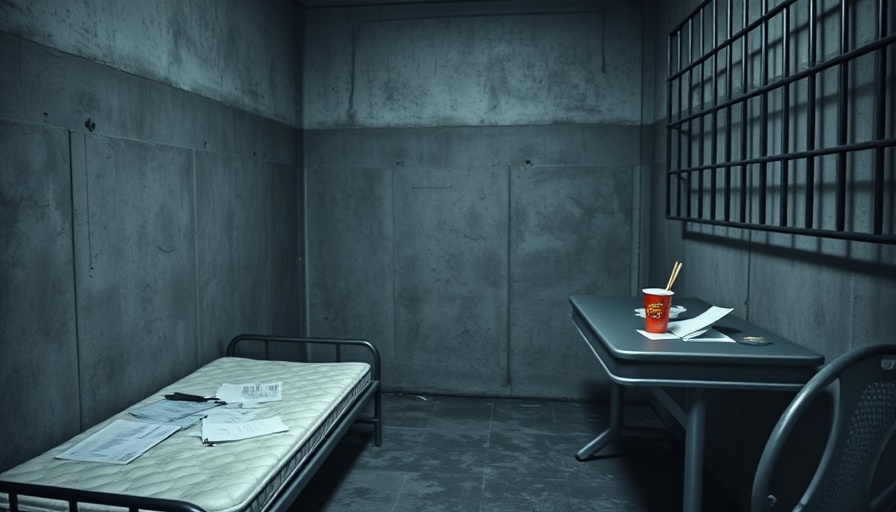
A Troubling Mental Health Crisis: Jails as Holding Cells
Across the United States, many communities are facing a pivotal crisis in mental health care. In Polson, Montana, the Lake County jail has inadvertently become a makeshift mental health center, where individuals suffering from mental health issues find themselves incarcerated rather than treated. This dismal situation has garnered increasing attention as more evidence emerges regarding systemic failures in mental healthcare systems nationwide.
Why Are Mental Health Patients Found in Jails?
Lake County's two isolation cells, sized no larger than a walk-in closet, serve a purpose no one wants to admit: they are jails that have turned into stigmatized institutions for the mentally ill. According to reports, many individuals, completely unconvicted of crimes, end up here due to a lack of available psychiatric bed space in the region and a gap in support services. This trend is not unique to Montana; it's part of a broader pattern highlighting that nearly half of all incarcerated individuals have some form of mental illness.
The Untold Impact on Individuals and Communities
These individuals, often stuck for months awaiting proper treatment, experience deteriorating mental health due to their confinement. The experiments with restraint, isolation, and limited resources signal not just a failure of a healthcare system, but also a societal collapse in dealing with mental health issues. It raises important questions about community responsibility and the ethical implications of treating the mentally ill in the criminal justice system instead of health facilities.
Lessons from Montana: A Nationwide Challenge
Montana is not an isolated case; similar patterns emerge from states like Wyoming and Nevada, where officials admit their jails have become overrun by individuals in need of crisis care. As healthcare systems face profound strain, the criminal justice system is forced to bear the burden, and the lives affected remain largely invisible. As advocates for mental health reform call for change, the challenges highlighted at the Lake County jail provide pivotal insights into the necessity for more effective crisis care resources and alternatives to incarceration.
A Call for Action in Mental Healthcare Reform
To effect change, communities must collectively advocate for improved systems—systems that prioritize mental health treatment, ensure appropriate facilities, and remove the stigma surrounding mental illness. Mental health crisis centers could serve as appropriate alternatives to jails, offering support rather than punishment. As counties nationwide grapple with similar situations, the call to transform the mental health landscape is urgent.
 Add Row
Add Row  Add
Add 




 Add Row
Add Row  Add
Add 



Write A Comment